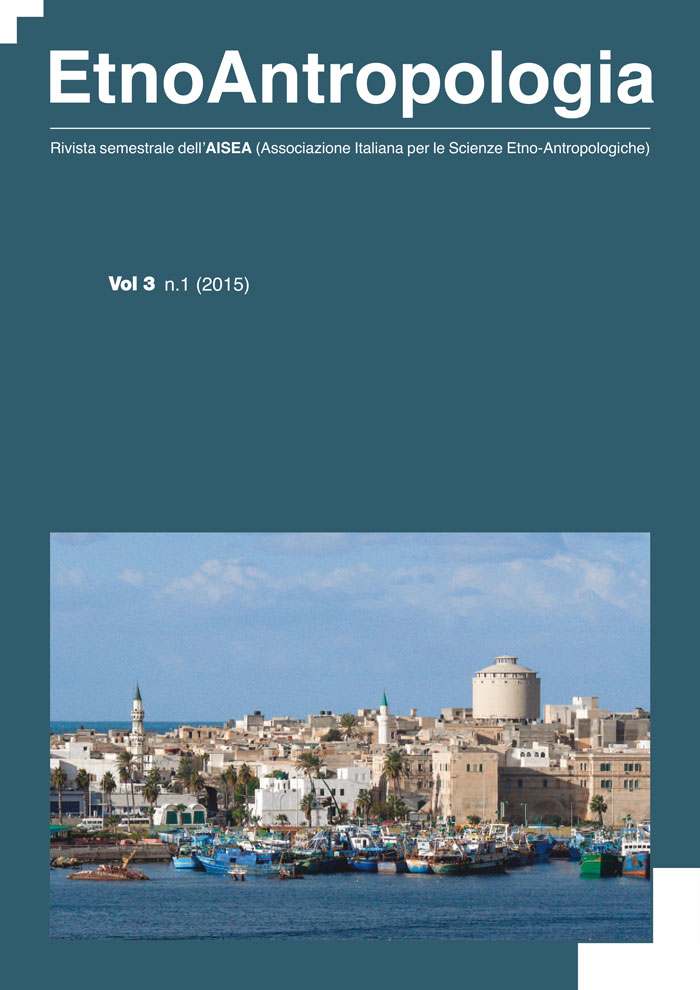Crisi identitaria e speculazione panarabista nella Tunisia post-rivoluzionaria: che ne facciamo della tunisianità e della lingua tunisina?
DOI:
https://doi.org/10.1473/182Parole chiave:
Tunisia, identity, language, dialect, pan-Arabism, Tunisian Islamic political partyAbstract
This text speaks about two very important problems existing in Tunisia, after revolution: identity and language. The problem about Tunisian identity is very present in Tunisia, because the article 38 of constitution speaks about Arabic-Muslim identity, but that, it is not correspond to the reality, because we have to talk about a specific identity character of the country. “Tunisianity”, it’s the wright answer to the article 38.
Second important question is the language. Always the article 38 of the constitution voted by the Islamic party at that time at the power, says that the national language is Arabic. Even that not correspond to the linguistic reality of the country, because classical Arabic is not spoken in Tunisia. People speaks Tunisian Arabic. So the text analyses the dangers of the article 38 about the real Tunisian identity and Tunisian language.
Riferimenti bibliografici
Amadasi Guzzo M.G. 2007, Carthage, Paris: PUF.
Braudel F. [1999], La Méditerranée. L'espace et l'histoire, Paris: Flammarion
Chater K. 2007, Le cheminement de l'idéal républicain à travers l'histoire, «La Presse de Tunisie» 25 juillet 2007.
Ghorbal S. 2014, Tunisie: le vote de la Constitution, mode d'emploi en 4 points, «Jeune Afrique», 9 janvier 2014.
Khadhar H. 1989, La Révolution française, le Pacte fondamental et la première Constitution tunisienne de 1861, «Revue du monde musulman et de la Méditerranée», 52, (52-53): 132-137.
Sebag P. 1991, Histoire des Juifs de Tunisie: des origines à nos jours, Paris: L'Harmattan.
Sallon H. 2014, Libertés, droits des femmes: les avancées de la Constitution tunisienne, «Le Monde», 27 janvier 2014.
Sulemain Y. 2003, The Arabic Language and National Identity: A Study in Ideology, Edimburg University Press: Eginburgh.
Pubblicato
Come citare
Fascicolo
Sezione
Licenza
Gli autori mantengono i diritti sulla loro opera e cedono alla rivista il diritto di prima pubblicazione dell'opera, contemporaneamente licenziata sotto una Licenza Creative Commons - Attribuzione che permette ad altri di condividere l'opera indicando la paternità intellettuale e la prima pubblicazione su questa rivista.
Gli autori possono diffondere la loro opera online (es. in repository istituzionali o nel loro sito web) prima e durante il processo di submission, poiché può portare a scambi produttivi e aumentare le citazioni dell'opera pubblicata (Vedi The Effect of Open Access).





